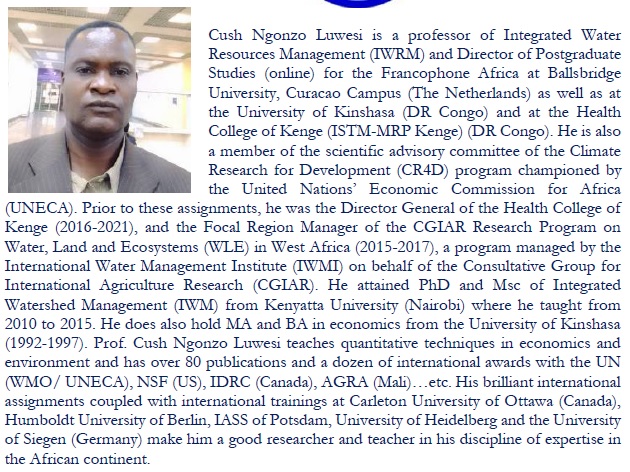New Book 2022: Why Green Water Saving is not Fully Rewarded by Farmers in Mount Kenya Region: A research frontier of pure: applied sciences and engineering

This book is an important contribution : Rainfed agriculture has become highly vulnerable to the depleting water resources in most arid and semi-arid
tropics (ASATs) of Mount Kenya under the effect of climate change. The impact has certainly been very high in Ngusishi catchment where more than 99% of the natural forest has been cleared. The farming communities have
created various innovative ways of coping with a warming environment to increase their resiliency to drought and foster agriculture. These include, among others, rain water management, reforestation and agro-forestry.
This study used statistical forecast techniques to unveil the past, current and future variations of the microclimate in Ngusishi catchment, and determine relevant factors casting doubt on the performance of Green Water Management (GWM) schemes. In view of the current trends of the population growth and urbanization in Ngusishi by the year 2030, agricultural expansion and farmers’ resilience to drought are seriously threatened if no appropriate policy, extension service and science-based emergency measures are put in place by the Government of Kenya. No wonder that, some farmers and watershed managers, especially within the ASALs, remain skeptical about the significance of the value added of GWS schemes compared to traditional
conservation, especially when it comes to addressing drought severity, owing to decreasing rates of river discharges and water infiltration in the soil.
Keywords: Agriculture, Micro-Climate; Climate Adaptation; Climate Vulnerability, Drought, Green Water, Watershed Management.

Download the bookhttp://jistee.org/wp-content/uploads/2022/08/JISTEEV07En-livre-August-2022.pdf


Add Comment